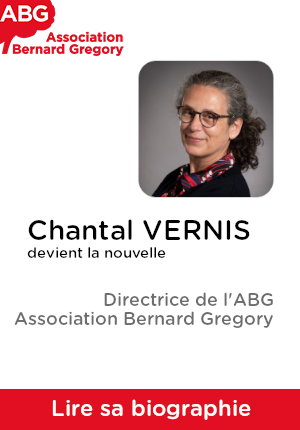Synthesis, exploration and exploitation of the physico-chemical properties of octahedral Mo and W clusters bearing functional phosphine oxide ligands
| ABG-130304 | Sujet de Thèse | |
| 01/04/2025 | Contrat doctoral |

- Chimie
Description du sujet
Obtained by synthesis at high temperatures, Mo or W octahedral cluster compounds of general formula A2[M6Xi8Xa6] with A: alkali cation, Xi: inner ligand; Xa: apical ligand are known to be phosphorescent in the red-near infrared with quantum yields of up to unity.[1] This family of compounds has demonstrated its interest in a wide range of applications, including healthcare, energy and sustainable development. The CSM team's work in this area has led to the production of materials for optics, optoelectronics, photocatalysis, photovoltaic cells and oxygen detection; we have integrated these luminescent clusters into liquid crystals or polymers, for anti-counterfeiting purposes and for applications in photodynamic therapy.[2]
While the functionalisation of the clusters apical positions (covalent approach) is very well documented in the literature, in particular through the creation of M-carboxylate, alcoholate, thiolate, phosphinate and M-pyridine bonds,[3] their functionalisation with phosphine oxide derivatives has still been little exploited and the photophysical properties of the resulting compounds little studied. However, our initial work on this family of compounds showed that air/temperature stable complexes could be obtained and that the emission properties of the original cluster could be retained.[4]
The objectives of this PhD work will therefore be:
1) to functionalise octahedral molybdenum and tungsten clusters with custom-synthesised organic molecules containing one or more phosphine oxide groups,
2) characterise them using all available techniques (NMR, mass spectrometry, vibrational and optical spectroscopy, X-ray diffraction, etc.)
3) study the physico-chemical properties of the resulting complexes, in particular their sensitivity to oxygen and their stability in aqueous media
4) incorporate them into nanocomposites to take advantage of their emission properties
The aim of this multidisciplinary, fundamental project will be also to explore the influence of the electron-withdrawing/electron-donating effects of apical ligands on the emission properties of cluster compounds, in order to select the most emissive/stable cluster compounds and exploit them in the fields of sustainable development and biology. The CSM team's cluster group at the Institut des Sciences Chimiques de Rennes is an international group that works with teams in Brazil, the USA, Spain, Germany, the Czech Republic, Cambodia and Japan to develop the materials it studies in the fields of energy, anti-counterfeiting, optoelectronics, photovoltaics and the fight against cancer.
[1] K. Kirakci, K. Fejfarová, M. Kučeráková, K. Lang, Eur. J. Inorg. Chem. 2014, 2014, 2331.
[2] a) A. Verger, G. Dollo, S. Martinais, Y. Molard, S. Cordier, M. Amela-Cortes, N. Brandhonneur, J. Pharm. Sci. 2022, 111, 3377-3383; b) M. Amela-Cortes, N. Dumait, F. Artzner, S. Cordier, Y. Molard, Nanomaterials 2023, 13; c) M. Ebert, I. Carrasco, N. Dumait, W. Frey, A. Baro, A. Zens, M. Lehmann, G. Taupier, S. Cordier, E. Jacques, Y. Molard, S. Laschat, Chem. - Eur. J. 2022, 28, e202103446; d) I. Carrasco, P. Ehni, M. Ebert, N. Dumait, G. Taupier, M. Amela-Cortes, C. Roiland, S. Cordier, J. A. Knöller, E. Jacques, S. Laschat, Y. Molard, ACS Appl. Mater. Interfaces 2023, 15, 39752-39764.
[3] L. F. Szczepura, E. Soto, in Ligated Transition Metal Clusters in Solid-state Chemistry : The legacy of Marcel Sergent (Ed.: J.-F. Halet), Springer International Publishing, Cham, 2019, pp. 75-108.
[4] V. Cîrcu, Y. Molard, M. Amela-Cortes, A. Bentaleb, P. Barois, V. Dorcet, S. Cordier, Angew. Chem. Int. Ed. 2015, 53, 10921-10925.
Prise de fonction :
Nature du financement
Précisions sur le financement
Présentation établissement et labo d'accueil
The Institut des Sciences Chimiques de Rennes (ISCR) is one of the largest chemical research institutes in France. Its ambition is to conduct top-level research in its core business: the design, synthesis and characterisation of molecules and functional materials. Its areas of research cover a wide range of applications: health, materials, optics and telecommunications, energy and the environment.
Created on 1 January 2006, the ISCR is the result of successive regroupings of all the academic forces in chemistry on the Rennes site. In 2023, it has more than 280 permanent staff, including around 140 academics, 65 CNRS researchers and 85 engineers and technicians, at the Rennes Beaulieu and Rennes Villejean sites and at the Lannion IUT, with a total workforce of more than 500. It is organised into eight teams of varying sizes and two technical, administrative and scientific departments, enabling it to effectively combine the scientific advantages of a structure covering a vast disciplinary field with a concern for supportive management.
The PhD student will be hosted in the ‘molecular clusters’ group of the Solid State Chemistry and Materials (CSM) team. He/she will benefit from all the infrastructures available on site, as well as privileged access to the UAR ScanMAT characterisation platforms.
Intitulé du doctorat
Pays d'obtention du doctorat
Etablissement délivrant le doctorat
Ecole doctorale
Profil du candidat
Keen to work in an international environment, the successful candidate will have an excellent level of English and an open mind. With a Master's degree showing his/her abilities in organic synthesis under controlled atmosphere, curiosity and motivation, the person recruited should ideally have knowledge/skills in optical spectroscopy.
Vous avez déjà un compte ?
Nouvel utilisateur ?
Vous souhaitez recevoir nos infolettres ?
Découvrez nos adhérents
 TotalEnergies
TotalEnergies  PhDOOC
PhDOOC  CESI
CESI  ONERA - The French Aerospace Lab
ONERA - The French Aerospace Lab  MabDesign
MabDesign  Institut Sup'biotech de Paris
Institut Sup'biotech de Paris  Groupe AFNOR - Association française de normalisation
Groupe AFNOR - Association française de normalisation  MabDesign
MabDesign  Laboratoire National de Métrologie et d'Essais - LNE
Laboratoire National de Métrologie et d'Essais - LNE  Aérocentre, Pôle d'excellence régional
Aérocentre, Pôle d'excellence régional  Ifremer
Ifremer  CASDEN
CASDEN  ANRT
ANRT  ASNR - Autorité de sûreté nucléaire et de radioprotection - Siège
ASNR - Autorité de sûreté nucléaire et de radioprotection - Siège  ADEME
ADEME  Nokia Bell Labs France
Nokia Bell Labs France  Tecknowmetrix
Tecknowmetrix  Généthon
Généthon  SUEZ
SUEZ
-
Sujet de ThèseRef. 130176Strasbourg , Grand Est , FranceInstitut Thématique Interdisciplinaire IRMIA++
Schrödinger type asymptotic model for wave propagation
Expertises scientifiques :Mathématiques - Mathématiques
-
EmploiRef. 130080Paris , Ile-de-France , FranceAgence Nationale de la Recherche
Chargé ou chargée de projets scientifiques bioéconomie H/F
Expertises scientifiques :Biochimie
Niveau d’expérience :Confirmé







